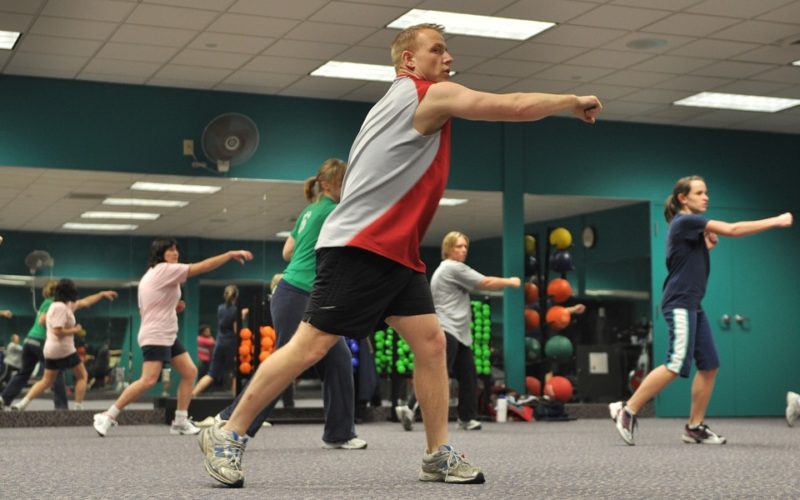Starting any exercise routine after a prolonged period can be challenging and intimidating. It's important to begin at a pace that feels comfortable for you, to avoid potential injury and to build up your stamina gradually.
Health and safety considerations
Consult a healthcare professional
Moreover, understanding the basics of safety when engaging in physical activity is crucial.
Investing in proper gear, like supportive footwear, and learning correct exercise techniques can drastically reduce the risk of injury. It is also important to stay hydrated and to be mindful of the weather conditions, especially when exercising outdoors, to prevent heatstroke in the summer and hypothermia in the winter.
Lastly, ensure you have a method of communication for emergencies, especially if venturing into less populated areas.
Understand the risks
When adopting a new fitness regimen, it is crucial to consult with a healthcare provider—especially for individuals with pre-existing health conditions or those who have been inactive. Gradually increasing the intensity and duration of physical activity can help mitigate risks.
Moreover, incorporating rest days into your schedule allows the body to recover and adapt to the new demands being placed upon it.
Developing a training plan
Set realistic goals
When training for a fun run, it's essential to diversify your training regime to improve your overall fitness and keep your routine enjoyable.
Incorporating a mix of long-distance runs, sprints, and rest days can enhance stamina and speed while preventing burnout. Be mindful to include strength and flexibility exercises, such as yoga or Pilates, to support your running form and guard against injury.
Regularly mixing up your training can help maintain motivation and ensure you're physically well-rounded on the day of the run.
Incorporate rest days
Incorporating rest days into a fitness regimen is not simply a recommendation—it is a critical element for long-term wellbeing and performance enhancement.
By allowing the body time to recuperate, one can prevent overtraining syndrome—which manifests as fatigue, decreased performance, and increased risk of injury.
Furthermore, rest days facilitate muscle recovery, prevent mental burnout, and provide an opportunity for reflection and planning, which contributes to a more sustainable and enjoyable fitness journey.
Cross-training
Cross-training stands as a comprehensive approach to fitness that involves varying one's exercise routine to incorporate different forms of workout.
This method not only reduces the risk of overuse injuries but also prevents boredom by offering variety. By engaging in a mix of endurance, strength, flexibility, and balance exercises, individuals can achieve a more balanced and adaptable fitness profile.
Moreover, as muscles recover from one type of exercise, cross-training allows the continuation of physical activity by focusing on other areas, thereby maintaining consistent fitness progression.
The importance of proper nutrition
Balanced diet
A balanced diet is crucial for maintaining optimal health and performance, particularly for those with an active lifestyle.
It should encompass a rich assortment of fruits and vegetables, providing vitamins and minerals, lean proteins for muscle repair and growth, complex carbohydrates for sustained energy, and healthy fats for hormonal function and joint health.
Integrating a variety of these nutrient-dense foods ensures that your body receives a broad spectrum of the essential nutrients it requires, not only to support rigorous training but also to recover and prepare for the next challenge.
Stay hydrated
Staying hydrated is not only vital for maintaining general health, but it is also critical for achieving peak performance during physical activity.
The body loses water more rapidly when engaging in exercise due to increased sweat and respiratory fluid loss. To compensate for this, it's recommended to increase fluid intake before, during, and after training.
Not only does this help in regulating body temperature, but it also aids in joint lubrication and the transportation of nutrients, contributing to optimal muscle function and recovery.
Staying motivated
Track your progress
Similarly, setting clear, achievable goals can be incredibly motivating, acting as milestones that mark your journey towards improved fitness.
Whether it's running a certain distance or mastering a challenging yoga pose, each goal reached is a testament to your dedication. It feeds into a positive feedback loop; the satisfaction of hitting a target propels you towards setting and achieving the next one.
Find a training buddy
Finding an appropriate training partner isn't just about companionship; it creates a symbiotic relationship where each person benefits. A buddy can introduce new techniques and routines, preventing your workouts from becoming stale.
Moreover, on days when motivation wanes, knowing someone else is counting on you can provide the necessary impetus to maintain your training schedule.
Choosing a training partner with similar fitness goals and commitment levels is crucial to ensure consistency and to avoid mismatches that could derail progress for either party.
Professional help
If a personalised touch is what you seek in your fitness journey, then employing a personal trainer might be a beneficial option.
These professionals are adept at crafting tailor-made fitness programmes designed to meet your specific needs and goals. Moreover, they possess the expertise to guide you through each exercise, ensuring proper form and technique to prevent injuries and maximise effectiveness.
Their constant support and encouragement serve as an excellent source of motivation, which can be instrumental in maintaining a consistent exercise routine and achieving long-term fitness aspirations.
Preparing for the event day
Plan your travel and accommodation
Ensure that your travel plans align with the event schedule, allowing ample time for any potential delays. Check the start time of the race and plan to arrive early, considering traffic, parking, and the time required to navigate to the event's starting area.
If you're staying overnight, select accommodation that's not only comfortable but also conveniently located near the event site to minimise race morning stress.
It's prudent to contact your hotel or host in advance to enquire about early breakfast options or the possibility of a late checkout post-race.
Tapering before the event
As you approach the day of the event, tapering should become an integral part of your preparation.
This process involves strategically reducing your training volume while maintaining intensity, which can help to optimise performance. Evidence suggests that a well-executed taper can enhance muscle repair, boost glycogen stores, and allow for psychological recovery. In the final days, focus on short bursts of activity that keep your muscles active without causing fatigue.
Remember, rest is not synonymous with complete inactivity—it's about finding the balance that retains your sharpness whilst affording your body the recovery it needs.
A truly rewarding endeavour
Training for a charity run when you've been out of the exercise loop for years can be a truly rewarding endeavour. It requires careful planning, a gradual approach, and a commitment to making incremental progress each day.
Remember, the aim is not just to cross the finish line but to enjoy every step of the journey while supporting a good cause.


















